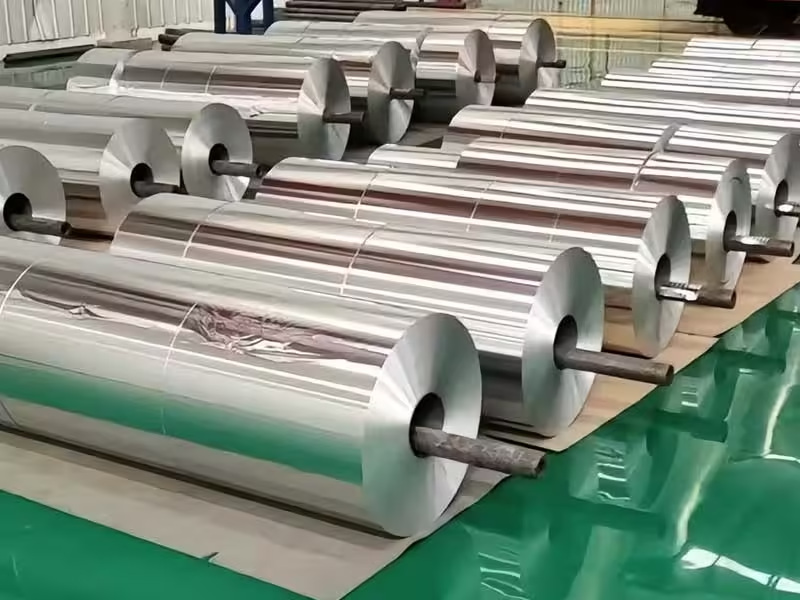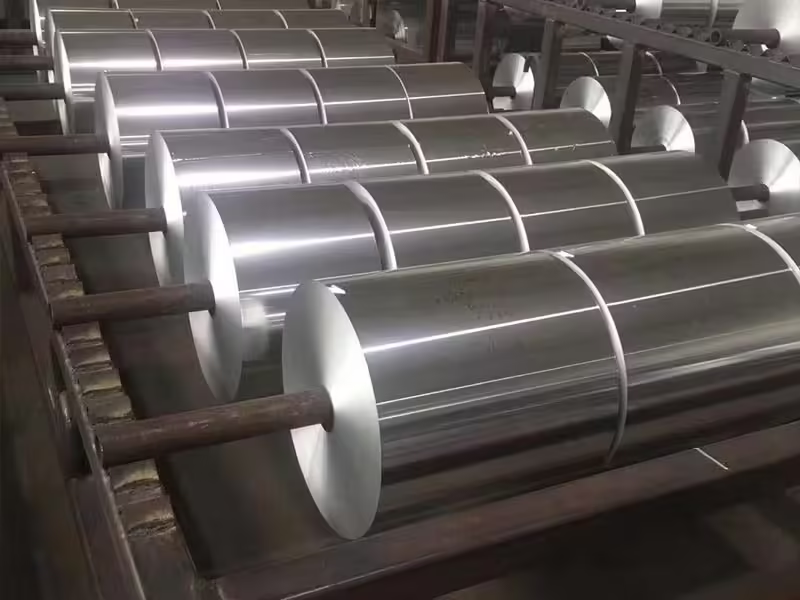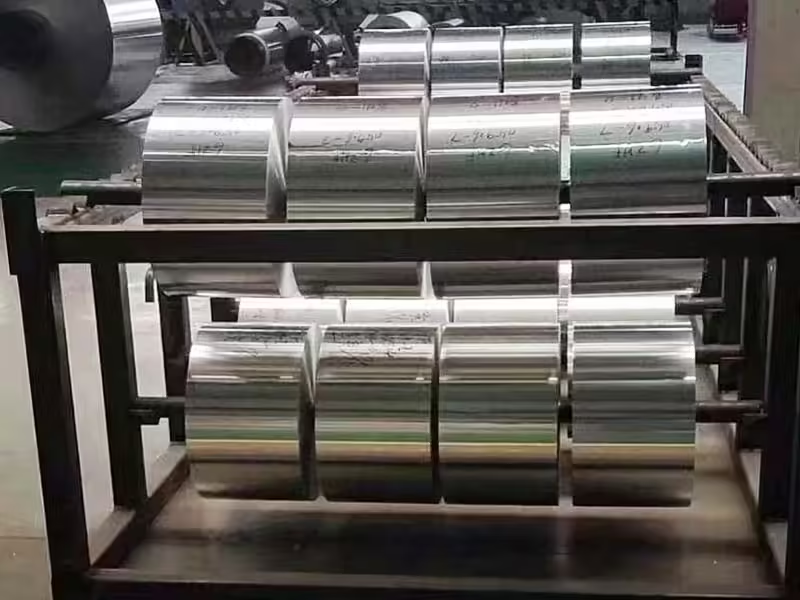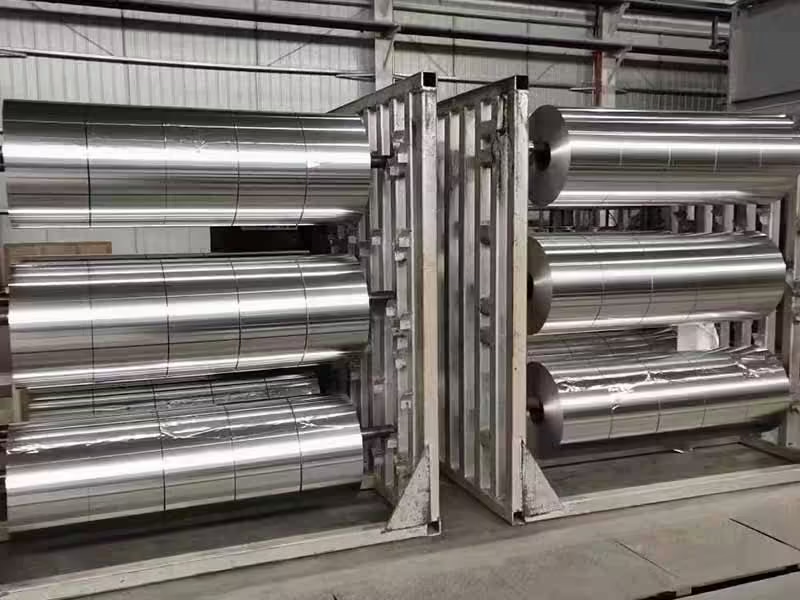Chào mừng đến với Blog của tôi!
Trước khi đi sâu vào nội dung, tôi rất muốn bạn tham gia cùng tôi trên các nền tảng truyền thông xã hội của tôi, nơi tôi chia sẻ thêm nhiều hiểu biết sâu sắc, tương tác với cộng đồng và đăng các bản cập nhật. Sau đây là cách bạn có thể kết nối với tôi:
Facebook:https://www.facebook.com/profile.php?id=61571539990739
Bây giờ, chúng ta hãy cùng nhau bắt đầu hành trình. Tôi hy vọng bạn thấy nội dung ở đây sâu sắc, hấp dẫn và có giá trị.
Mục lục
Giới thiệu

Khi nghĩ đến giấy bạc, bạn có thể nghĩ ngay đến nhà bếp, đến việc gói thức ăn thừa hay lót khay nướng. Tuy nhiên, vật liệu đa năng này đóng vai trò then chốt trong việc cách nhiệt ở nhiều ngành công nghiệp khác nhau. Với những đặc tính độc đáo, giấy bạc kim loại đã trở thành nền tảng trong việc nâng cao hiệu quả năng lượng, giảm ô nhiễm tiếng ồn và bảo vệ các công trình khỏi các yếu tố môi trường.
Trong bài viết này, chúng ta sẽ đi sâu vào lý do tại sao kim loại nhôm lại nổi bật là vật liệu cách nhiệt lý tưởng, khám phá các đặc tính, ứng dụng và lợi ích của nó.
Hiểu về tính chất cách điện của kim loại lá nhôm
Phản xạ nhiệt cao
Một trong những đặc điểm nổi bật của lá nhôm kim loại là khả năng phản xạ nhiệt bức xạ. Với hệ số phản xạ lên đến 95%, lá nhôm phản xạ nhiệt hiệu quả về phía nguồn, giảm thiểu sự truyền nhiệt và tăng hiệu suất nhiệt.
Độ phát xạ thấp
Độ phát xạ đề cập đến khả năng phát ra nhiệt hấp thụ của vật liệu. Kim loại nhôm có độ phát xạ thấp, nghĩa là nó không dễ dàng tỏa nhiệt, củng cố thêm vai trò cách nhiệt hiệu quả của nó.
Tính chất rào cản
Ngoài khả năng cách nhiệt, màng nhôm còn đóng vai trò như một lớp chắn chống ẩm, không khí và ánh sáng. Tính chất không thấm nước này đảm bảo không gian cách nhiệt không bị ảnh hưởng bởi các yếu tố môi trường bên ngoài, duy trì điều kiện bên trong mong muốn.
Ứng dụng của Giấy bạc nhôm Kim loại trong vật liệu cách nhiệt


Xây dựng và Thi công
Trong ngành xây dựng, kim loại lá nhôm thường được sử dụng cho tường, mái và sàn để tăng cường khả năng cách nhiệt. Tính chất phản xạ của nó giúp duy trì nhiệt độ trong nhà, giảm nhu cầu sưởi ấm hoặc làm mát quá mức.
Hệ thống HVAC
Hệ thống sưởi ấm, thông gió và điều hòa không khí được hưởng lợi từ khả năng cách nhiệt của kim loại lá nhôm. Bằng cách bọc ống dẫn và đường ống, nó giảm thiểu thất thoát nhiệt, đảm bảo hiệu suất hệ thống.
Ngành công nghiệp ô tô
Trong xe cộ, kim loại lá nhôm được sử dụng để cách nhiệt các bộ phận, bảo vệ chúng khỏi nhiệt và đảm bảo hiệu suất tối ưu. Tính chất nhẹ của nó không làm tăng đáng kể trọng lượng, khiến nó trở nên lý tưởng cho các ứng dụng ô tô.
Ứng dụng hàng không vũ trụ
Ngành hàng không vũ trụ sử dụng kim loại lá nhôm cho nhu cầu cách nhiệt, đặc biệt là trong tàu vũ trụ, nơi điều chỉnh nhiệt độ là rất quan trọng. Khả năng phản xạ nhiệt và chịu được nhiệt độ khắc nghiệt khiến nó trở nên không thể thiếu.
Bao bì thực phẩm và dược phẩm
Tính chất chắn sáng của giấy bạc nhôm lý tưởng cho việc đóng gói hàng hóa dễ hỏng. Nó ngăn chặn độ ẩm và ánh sáng ảnh hưởng đến hàng hóa bên trong, đảm bảo độ tươi ngon và hiệu quả.
Phân tích so sánh kim loại lá nhôm trong vật liệu cách nhiệt
| Tài sản | Lợi ích | Ứng dụng |
|---|---|---|
| Độ phản xạ cao | Phản xạ tới 95% nhiệt bức xạ | Cách nhiệt tòa nhà, hệ thống HVAC |
| Độ phát xạ thấp | Giảm thiểu sự tỏa nhiệt | Hàng không vũ trụ, linh kiện ô tô |
| Rào cản độ ẩm | Ngăn chặn sự xâm nhập của độ ẩm | Bao bì thực phẩm, vật liệu xây dựng |
| Nhẹ | Dễ dàng xử lý và cài đặt | Ô tô, xây dựng |
| Độ bền | Chống ăn mòn và suy thoái | Giải pháp cách nhiệt lâu dài |
| Khả năng tái chế | Thân thiện với môi trường | Thực hành xây dựng bền vững |
Ưu điểm của việc sử dụng kim loại lá nhôm để cách nhiệt

Hiệu quả năng lượng
Bằng cách phản xạ nhiệt bức xạ, kim loại lá nhôm làm giảm nhu cầu sưởi ấm hoặc làm mát nhân tạo, giúp tiết kiệm năng lượng đáng kể.
Hiệu quả về chi phí
Độ bền và hiệu quả của nó có nghĩa là ít phải thay thế và bảo trì hơn, giúp tiết kiệm chi phí theo thời gian.
Tính linh hoạt
Từ nhà ở đến tàu vũ trụ, khả năng thích ứng của kim loại lá nhôm khiến nó phù hợp với nhiều ứng dụng khác nhau.
Tác động môi trường
Có thể tái chế, sản phẩm này phù hợp với các hoạt động bền vững, giảm thiểu tác động đến môi trường.
Phần kết luận
Nhôm lá kim loại đã chứng tỏ là vật liệu không thể thiếu trong lĩnh vực cách nhiệt. Sự kết hợp độc đáo các đặc tính của nó giải quyết những thách thức đa dạng về điều chỉnh nhiệt độ, kiểm soát độ ẩm và tính bền vững môi trường. Khi các ngành công nghiệp và cá nhân đều tìm kiếm các giải pháp hiệu quả và thân thiện với môi trường, nhôm lá kim loại nổi bật là một lựa chọn đáng tin cậy.
Câu hỏi thường gặp
Kim loại lá nhôm có thể được sử dụng kết hợp với các vật liệu cách nhiệt khác không?
Có, nó thường bổ sung cho các vật liệu khác, nâng cao hiệu suất cách nhiệt tổng thể.
Kim loại lá nhôm có phù hợp để sử dụng cách nhiệt ngoài trời không?
Chắc chắn rồi. Khả năng chống ẩm và chống ăn mòn của nó khiến nó trở nên lý tưởng để sử dụng ngoài trời.
Kim loại lá nhôm góp phần tiết kiệm năng lượng như thế nào?
Bằng cách phản xạ nhiệt bức xạ, nó làm giảm sự phụ thuộc vào hệ thống sưởi ấm và làm mát, dẫn đến mức tiêu thụ năng lượng thấp hơn.
Lá nhôm có phải là kim loại thân thiện với môi trường không?
Có, nó có thể tái chế và góp phần vào hoạt động xây dựng bền vững.
Độ dày của lá nhôm có ảnh hưởng đến tính chất cách điện của nó không?
Mặc dù độ dày có thể ảnh hưởng đến độ bền, nhưng tính chất phản xạ và rào cản vẫn có hiệu quả ở nhiều độ dày khác nhau.

